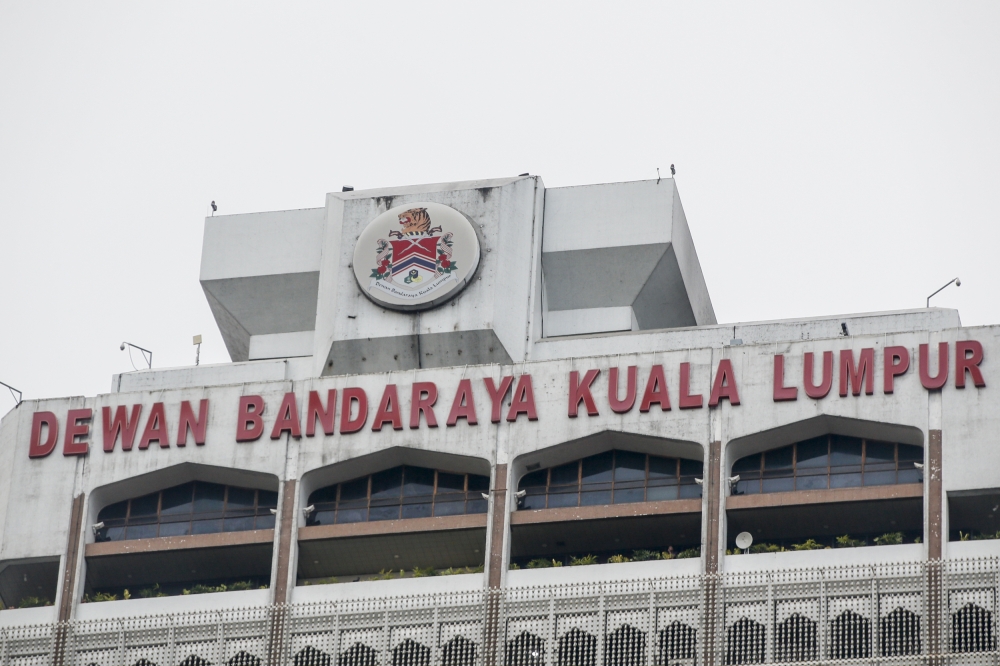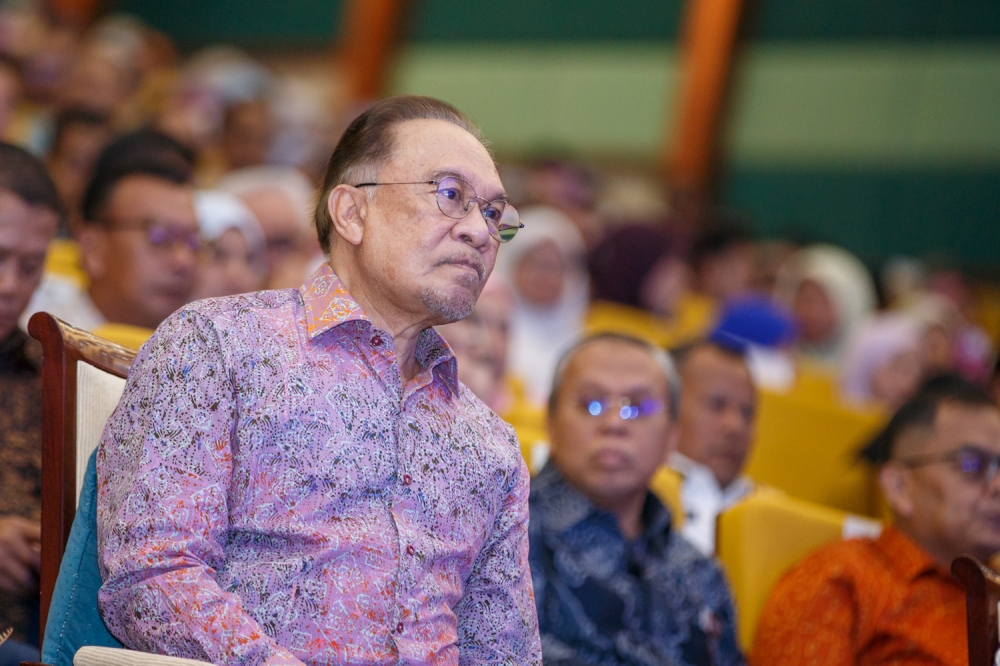PUTRAJAYA, Dec 14 — The offence of committing “unnatural sex” is a criminal matter that only the federal government — via Parliament — has the powers to make laws on, while state governments lack the power to make state laws to criminalise and punish it as a Shariah offence, a lawyer argued in the Federal Court today.
Today was the hearing by a nine-man panel at the Federal Court of a Malaysian Muslim man’s constitutional challenge against a Selangor state law that makes unnatural sex a Shariah offence in the state, with the challenge revolving around whether the Selangor state government had the power to make state Shariah laws on the offence.
This Shariah offence, which the man was charged with in the Shariah courts in Selangor, is Section 28 of the Syariah Criminal Offences (Selangor) Enactment 1995.
Section 28 makes it a Shariah offence for “any person” performing “sexual intercourse against the order of nature with any man, woman or animal”, with the punishment being a maximum fine of RM5,000 or a maximum three-year jail term or a maximum whipping of six strokes or any combination.
Lawyer Datuk Malik Imtiaz Sarwar, who represented the man, explained that the case today involved the key question of the Federal Constitution’s limits on what the state government can make laws on.
While the Federal Constitution gives state governments the powers to make laws on certain Islamic matters such as offences against the religion of Islam, Imtiaz pointed out that the Federal Constitution at the same time carries the condition that such state laws should not be on matters that are already within the powers of the federal government to make laws on.
“So under the Constitution, the criminal system of law is in Parliament’s hands. So Parliament has what we say exclusive powers to create the laws pertaining to the criminal justice system — that means the laws, the prosecution, sentencing, everything.
“So then we have this exception for offences against the religion of Islam, which the state can make. So the question for the court is how to reconcile the two powers, because strictly speaking any offence is a matter of criminal law, and if that is correct, then that has to be in Parliament’s power.
“Because the power in the state is also said as being qualified to the extent that it is not in the federal list, so that’s the issue before the court.
“So what we argued today is a matter of substance, this offence is a criminal offence falling within the federal list. And just because you put a term ‘Islamic’ on it, doesn’t change it from a criminal law or a criminal offence to one of Islamic offence, because the substance of the offence is the same going both ways,” he explained to reporters when met after the hearing at the Federal Court.
Federal government’s powers vs state government’s powers
In the Federal Constitution’s Ninth Schedule, List I which is also known as the Federal List states what the federal government via Parliament can make laws on, while List II which is also the State List states the matters which state governments through their respective state legislative assemblies can make laws on.
Citing the State List in the Federal Constitution, Imtiaz highlighted that it allows state governments to make state laws on the “creation and punishment of offences by persons professing the religion of Islam against precepts of that religion, except in regard to matters included in the Federal List”, stressing that this carries the condition or acts as a “preclusion clause” to exclude the state government from making laws on matters that are in the Federal List or fall under the federal government’s jurisdiction.
Imtiaz then highlighted the Federal List in the Federal Constitution, which covers matters such as internal security, police, criminal investigation, prisons, civil and criminal law and procedure and the administration of justice, and creation of offences in respect of any matters included in the Federal List or dealt with by federal law.
In arguing that the state governments have no power to make unnatural sex a Shariah offence through state laws, Imtiaz highlighted that the federal government or Parliament has already made unnatural sex an offence through a federal law known as the Penal Code.
“There’s a provision in Parliament, the Penal Code is there, it provides the same offence, there cannot be two offences administered by two separate bodies,” he said during the hearing.
.jpg)
What the Selangor government and Islamic authorities argued
Following Imtiaz’s arguments in court, the judges on the panel repeatedly narrowed down the key question at hand in this case, which was whether the Selangor state government has powers under the Federal Constitution to make state laws on matters that fall within the federal government’s powers.
Selangor state legal adviser Datuk Salim Soib @ Hamid, who represented the Selangor state government, argued that the Federal List did not directly mention offences against the “precepts of Islam”, further arguing that this meant the state government could make laws on unnatural sex as it is related to offences against the precept of Islam.
Federal Court judge Datuk Seri Zawawi Salleh highlighted the risk of such an argument as he sought clarification from Salim, questioning if it meant that the state legislative bodies would be able to pass laws on wide-ranging matters that could easily be considered as against Islam such as stealing and robbery.
Chief Justice Tun Tengku Maimun Tuan Mat also questioned such a line of argument and whether what was contemplated was two sets of laws by the federal government and state governments for offences such as theft, robbery, murder.
“So going back to my question, is theft not precept of Islam? What about murder, rape, corruption and robbery? So my question is are we contemplating to have one set of laws under the MACC Act and another set of laws whichever state will pass that will have these offences because it is against the precept of Islam. Are we contemplating that?” she asked.
Salim argued that the state government should have the power to make state laws on any offences considered to be against the precepts of Islam, but which are not already covered under existing federal laws by the federal government.
Salim also argued that the Selangor state law’s Section 28 offence on unnatural sex was worded differently to the unnatural sex offence under Section 377 of the Penal Code.
Zawawi however at one point interjected to point out that the unnatural sex offence of sodomy has long existed in federal laws, and that it was only subsequently that state governments introduced unnatural sex as a Shariah offence through state laws.
Chief Judge of Malaya Tan Sri Azahar Mohamed also reminded Salim that apart from Section 28 being said to be regarding offences against the precepts of Islam, the key question was actually on the preclusion clause in the Federal Constitution which stops state governments from making laws that are under the federal government’s jurisdiction or under federal laws.
“Because the power given by Parliament is that the state legislature can legislate offences against the precepts of Islam, but it doesn’t stop there. It says you can create this offence, except in respect of matters which are in the Federal List. How do you explain that? Why does the preclusion clause not apply to this case, how do you explain that?” Azahar asked.
“When Section 28 was enacted, there was already Section 377 in the Penal Code, it already existed. So how do you reconcile it?” he asked.
.jpg)
Lawyer Halimatunsa’diah Abu Ahmad, who represented the Selangor Islamic Religious Council (Mais) who is an intervenor in this case, responded to the issue of the preclusion clause by arguing that Parliament itself recognises that there is a difference between Shariah law and the federal law when it comes to criminal offences.
Halimatunsa’diah also argued that the elements of Section 377 and Section 28 are different such as the element of voluntariness purportedly not included under Section 28, and that the standard of proof to prove the offence of unnatural sex would differ under both laws.
Tengku Maimun questioned what the basis in the Federal Constitution was that says that the courts should be looking at distinctions of the offences instead of whether the matter falls under federal law when the courts examines whether the state government have the competency to make laws.
“We all accept what is contrary to Islamic law is contrary to the precepts of Islam... But our focus is on the provisions of the Federal Constitution in relation to demarcation of legislative power of the state and Parliament,” the chief justice said at another point.
.jpg)
Lawyer Abdul Rahim Sinwan, who represented the Federal Territories Islamic Religious Council (MAIWP) as amicus curiae, argued that Section 28 is both valid and constitutional, arguing that Section 28 covers unnatural sex with men, women and animal but that Section 377 purportedly only covered such instances involving men and animals.
In response to the arguments by the Selangor state government, Mais and MAIWP, Imtiaz pointed out that Section 377 was identical to Section 28 before it was amended and split up into several separate provisions in its current form.
“Section 377 used to provide the same terms as Section 28, and then it was amended to make it clearer... They thought better to break Section 377 into A to E for sentencing issues to be looked at clearly, but when it started off, it was the same provision as Section 28,” he said.
Under the latest edition of the Federal Constitution, Section 377 relates to the offence of sexual intercourse with an animal, Section 377A covers unnatural sex between two persons with the punishment outlined in Section 377B, Section 377C covers unnatural sex on another person without the latter’s consent, Section 377CA involves sexual connection with any object, Section 377D involves outrages on decency, and Section 377E covers the offence of inciting a child to an act of gross indecency.
After hearing all the arguments, Tengku Maimun said that the Federal Court would adjourn to deliver the decision at a later time.
The other judges on today’s nine-man panel are President of the Court of Appeal Tan Sri Rohana Yusuf, Chief Judge of Sabah and Sarawak Datuk Abang Iskandar Abang Hashim, Federal Court judges Datuk Nallini Pathmanathan, Datuk Vernon Ong, Datuk Zabariah Mohd Yusof, and Datuk Seri Hasnah Mohammed Hashim.
When met outside the courtroom, Imtiaz told reporters that today’s case is important as it will allow the Federal Court via a nine-judge panel to clearly address once and for all on how to balance the different jurisdictions when it comes to making laws, noting that this is likely only the second time that the question has come up with such prominence in the courts.
“So the argument really turns on the offences against the precepts of Islam, what that means and the clause except where provided for in the Federal List. So it’s not just a question of precepts of Islam, it is offences (against the precepts of Islam) and not provided for in the Federal List, so it narrows down the scope,” he added.
.jpg)
Two other court cases on hold
Other than today’s constitutional challenge, the Malaysian Muslim man was previously charged in the Selangor Shariah High Court with the Shariah offence of unnatural sex under the Selangor state law, and had also previously filed for judicial review to challenge the validity and constitutionality of the Section 28 offence and to also seek the quashing of the Shariah trial against him.
Lawyer Surendra Ananth, who is also representing the Malaysian Muslim man, confirmed today that both the Shariah trial and the judicial review hearingat the civil High Court has been put on hold pending the outcome of the constitutional challenge today on the ability of the Selangor state government to make state laws on the unnatural sex offence.
The name of the Malaysian Muslim man is being withheld on the request of the lawyers. His lawyers had previously highlighted the risks he would be exposed to if his identity was to be disclosed publicly.
His other lawyers today are Honey Tan Lay Ean, Tay Kit Hoo, while Nur Irmawatie Daud and Husna Abdul Halim also appeared for the Selangor state government, Azlan Sulaiman and Yap Chean Hong for Mais, and Muhamad Hisham Marzuki for MAIWP. Lawyer Andrew Khoo held a watching brief for the Human Rights Commission of Malaysia (Suhakam).
















.jpg)
